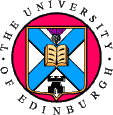

In file ../include/EST_TrackMap.h:
Track maps provide a mapping from symbolic track names to the actual position of the information within a track frame.
Inheritance:
Public Methods
![[more]](icon1.gif) | EST_TrackMap (void)
Default constructor
|
![[more]](icon1.gif) | EST_TrackMap (EST_TrackMap &from, int refcount)
Copy the mapping
|
![[more]](icon1.gif) | EST_TrackMap (struct ChannelMappingElement map[])
Create from static table
|
![[more]](icon1.gif) void void | clear (void)
Empty the map
|
![[more]](icon1.gif) void void | set (EST_ChannelType type, short pos)
Record the position of a channel
|
![[more]](icon1.gif) short short | get (EST_ChannelType type) const
Get the position of a channel
|
![[more]](icon1.gif) short short | operator() (EST_ChannelType type) const
Get the position of a channel
|
![[more]](icon1.gif) bool bool | has_channel (EST_ChannelType type) const
Does the mapping contain a position for this channel?
|
![[more]](icon1.gif) short short | last_channel (void) const
Returns the index of the last known channel
|
![[more]](icon1.gif) EST_ChannelType EST_ChannelType | channel_type (unsigned short channel) const
Returns the type of the channel at the given position
|
Public
![[more]](icon1.gif) #define #define | NO_SUCH_CHANNEL (-1)
Returned if we ask for a channel not in the map
|
Protected Methods
![[more]](icon1.gif) | EST_TrackMap (int refcount)
Creation function used by friends to create refcounted maps
|
![[more]](icon1.gif) | EST_TrackMap (const EST_TrackMap* parent, int offset, int refcount)
Creation function used by friends to create sub-trak maps
|
![[more]](icon1.gif) void void | copy (EST_TrackMap &from)
copy an exiting map
|
![[more]](icon1.gif) void void | init (void)
Initialise the map
|
Protected
![[more]](icon1.gif) #define #define | EST_TM_REFCOUNTED (1)
Pass to creation function to turn on refcounting
|
Documentation
Track maps provide a mapping from symbolic track names to the
actual position of the information within a track frame. The
symbolic names are defined by the EST_ChannelType enumerated type.
Track maps can be declared statically by code which always uses
tracks of a given style, or they can be built at run time as
is done by lpc_analysis to record whichinformation the
user has requested. Finally they can be constructed by the Track
itself from the names of the channels, for instance when a track has
just been read in from a file.
 ChannelMapping
ChannelMapping
- An auxiliary type used just to define static EST_TrackMaps.
Defining one of these and then converting it to an EST_TrackMap
is, unfortunatly, the only way C++ allows to define
a constant EST_TrackMap.
 struct ChannelMappingElement
struct ChannelMappingElement
- structure for the table
 Table of type to position pairs
Table of type to position pairs
- Table of type to position pairs
 #define NO_SUCH_CHANNEL(-1)
#define NO_SUCH_CHANNEL(-1)
- Returned if we ask for a channel not in the map
 #define EST_TM_REFCOUNTED(1)
#define EST_TM_REFCOUNTED(1)
- Pass to creation function to turn on refcounting
 EST_TrackMap(int refcount)
EST_TrackMap(int refcount)
- Creation function used by friends to create refcounted maps
 EST_TrackMap(const EST_TrackMap* parent, int offset, int refcount)
EST_TrackMap(const EST_TrackMap* parent, int offset, int refcount)
- Creation function used by friends to create sub-trak maps
 void copy(EST_TrackMap &from)
void copy(EST_TrackMap &from)
- copy an exiting map
 void init(void)
void init(void)
- Initialise the map
 EST_TrackMap(void)
EST_TrackMap(void)
- Default constructor
 EST_TrackMap(EST_TrackMap &from, int refcount)
EST_TrackMap(EST_TrackMap &from, int refcount)
- Copy the mapping
 EST_TrackMap(struct ChannelMappingElement map[])
EST_TrackMap(struct ChannelMappingElement map[])
- Create from static table
 void clear(void)
void clear(void)
- Empty the map
 void set(EST_ChannelType type, short pos)
void set(EST_ChannelType type, short pos)
- Record the position of a channel
 short get(EST_ChannelType type) const
short get(EST_ChannelType type) const
- Get the position of a channel
 short operator() (EST_ChannelType type) const
short operator() (EST_ChannelType type) const
- Get the position of a channel
 bool has_channel(EST_ChannelType type) const
bool has_channel(EST_ChannelType type) const
- Does the mapping contain a position for this channel?
 short last_channel(void) const
short last_channel(void) const
- Returns the index of the last known channel
 EST_ChannelType channel_type(unsigned short channel) const
EST_ChannelType channel_type(unsigned short channel) const
- Returns the type of the channel at the given position
- This class has no child classes.
- Friends:
- class EST_Track
ostream& operator << (ostream &st, const EST_TrackMap &m)
- Author:
- Richard Caley <rjc@cstr.ed.ac.uk>
- Version:

- See Also:
- EST_Track
EST_ChannelType
EST_TrackMap:example
Alphabetic index HTML hierarchy of classes or Java

This page is part of the
Edinburgh Speech Tools Library documentation
Copyright University of Edinburgh 1997
Contact:
speech_tools@cstr.ed.ac.uk



